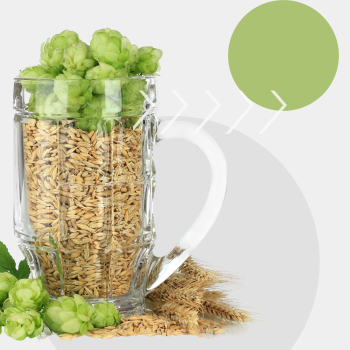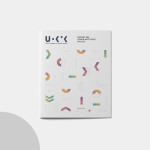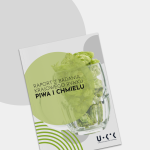
- UOKiK examined the characteristics, relationships, and level of competition in the Polish market for malt used in beer production.
- Its main problem is the insufficient quantity and quality of grains needed for malt production.
- In addition to the diagnosis, the report also includes recommendations.
Poland is one of the leading beer producers in the European Union. According to the latest Eurostat data, more than one in ten bottles of EU-produced beer (approx. 3.4 billion litres) are produced in our country. In this respect, Poland ranks third, after Germany (7.2 billion litres) and Spain (4 billion litres). For this reason, UOKiK decided to examine how this market operates and the relationships within it.
The study targeted 16 selected breweries, including the largest beer producers operating in Poland. It also included hop producers, processors, and intermediaries, as well as malt houses – the main suppliers of raw materials for beer production. The analysis primarily focused on the years 2019–2022. To illustrate trends, earlier years were also considered, especially from Poland’s first full year of EU membership onward.
The results are presented in UOKiK reports: “Report on the Study of the Domestic Beer and Hops Market”, published in August last year, and the recently published “Domestic Market for Malt Used in Beer Production”, both containing recommendations for legal and systemic changes.
“The report on the malt market completes the picture of the Polish brewing industry. We gathered information on how the domestic beer market operates and on the raw materials used for producing beer, particularly the relationships between agricultural producers, intermediaries, and breweries. We examined issues such as market concentration and price dynamics. We also put forward recommendations. Together with the report on the beer and hop market, published a year ago, they form a valuable source of knowledge and guidance for one of the key sectors of Poland’s food industry”, says President of UOKiK Tomasz Chróstny.
Market characteristics
The Polish malt and beer market is composed of processors, including breweries, intermediaries, and grain producers, who are relatively the weakest yet the most numerous participants. According to brewery representatives, the market for beer production raw materials is competitive, especially in the case of malt. Representatives of malt houses supplying the surveyed breweries expressed similar views. They pointed out that “the Polish malt market is a sellers’ market”, and that price pressure from Czech and Slovak malt houses pushed domestic processors toward developing malt exports.
“Although representatives of malt houses and breweries claim that in Poland we are dealing with a “sellers’ market for raw materials”, our observations paint a somewhat different picture. Contracts between some producers and suppliers of unmalted grain included provisions that prompted us to analyse them for possible violations of the law. These concern, among others, the methodology of price formation for raw materials, payment terms, and certain clauses”, says President of UOKiK Tomasz Chróstny.
Grain suppliers
Grains are a fundamental raw material for the brewing industry. They are the source of malt or malt extracts, from which beer is brewed through fermentation with yeast and the addition of hops. The key grain in beer production is malting barley. Meanwhile, the total number of farms growing barley has declined: from 492,000 in 2005 to almost 190,000 in 2020. The total area of barley cultivation has also followed a downward trend for years (between 2000 and 2024, it decreased by 37%). Although harvest volumes have not changed as drastically (3 million tonnes in 2024 compared to an average of 3.3 million tonnes between 2000 and 2023), several malt houses and breweries surveyed pointed to a deficit of malting barley on the Polish market. As a result, domestic malt houses sourced grain not only from Polish agricultural producers but also from domestic and foreign intermediaries or processors. Contracts between malt houses and grain suppliers are dominated by long-term cultivation contracts with agricultural producers: in 2022, they accounted for 52% of the value of grain purchases, with ad hoc agreements representing 22%.
Malt producers
In 2022, 4 malt houses with foreign capital accounted for approximately 99% of domestic malt production. Considering the malt sales market in Poland (i.e. domestic malt production plus imports and minus exports), the surveyed malt houses and intermediaries operating in Poland accounted for a total of 54% of malt sold domestically. Among the surveyed entities, in terms of sales volume, the largest share belonged to Soufflet Malting, followed by Viking Malt, Crisp Malt, and Malteurop Polska. The first three companies each held a market share of over 10%, while the latter did not exceed 10%. Only one of the breweries surveyed had its own malting plant, operating solely for its own needs.
The supply of domestic malt is not sufficient to meet the needs of breweries operating in Poland. Therefore, during the period under review, nearly half of all malt was imported. Of the imported malt, in 2022, 98% was purchased directly by breweries.
Recommendations
During the period examined by UOKiK, domestic malt production was not sufficient to meet the demand of beer producers. At the same time, the potential for increasing malt production in Poland is limited by the availability of grain, primarily malting barley, in the required quantity and quality. This is largely due to natural factors such as climatic conditions and soil quality, but also due to access to knowledge, technology, organisational competences, and cooperation within the industry.
“Poland has the potential to scale up and diversify malt production. However, this requires closer cooperation between malt houses and breweries with domestic growers, as well as support for barley cultivation, including in terms of quality know-how. Farmers should overcome barriers and cooperate with industry organisations or within producer groups in order to exchange experiences, seek alternative solutions for farm and production organisation, pool orders for services, diversify sales channels and outlets for crops, and strengthen their bargaining position”, says President of UOKiK Tomasz Chróstny.
One way of building relationships between market participants is through contracts. When properly drafted, clearly defining mutual rights and obligations, and taking into account the applicable legal framework and case law, contracts can reduce misunderstandings and potential dispute costs, and form a basis for long-term cooperation. Moreover, it should be emphasised that any irregularities in contracts concluded with relatively smaller and weaker suppliers may be challenged under the Act on Counteracting the Unfair Use of Contractual Advantage in Trade in Agricultural and Food Products, which is enforced by the President of UOKiK. Continuous monitoring of case law in this area is recommended.
The report and its recommendations can be found and downloaded from the UOKiK website.
Information for the media
| +48 603 124 154 | |
| biuroprasowe@uokik.gov.pl | |
 | pl. Powstańców Warszawy 1 00-950 Warszawa |











